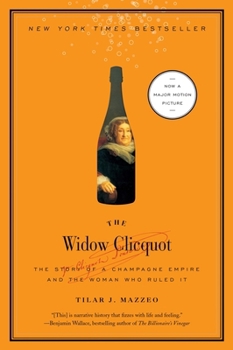The Widow Clicquot: The Story of a Champagne Empire and the Woman Who Ruled It
Select Format
Select Condition 
Book Overview
"Narrative history that fizzes with life and feeling." -- Benjamin Wallace, New York Times bestselling author of The Billionaire's Vinegar
The New York Times bestselling biography of the visionary young woman who built a champagne empire, became a legend, and showed the world how to live with style
Veuve Clicquot champagne epitomizes glamour, style, and luxury. In The Widow Clicquot, Tilar J. Mazzeo brings to life--for the first time--the fascinating woman behind the iconic yellow label: Barbe-Nicole Clicquot Ponsardin, who, after her husband's death, defied convention by assuming the reins of the fledgling wine business they had nurtured together. Steering the company through dizzying political and financial reversals, she became one of the world's first great businesswomen and one of the richest women of her time.
As much a fascinating journey through the process of making this temperamental wine as a biography of a uniquely tempered woman, The Widow Clicquot is the captivating true story of a legend and a visionary.







